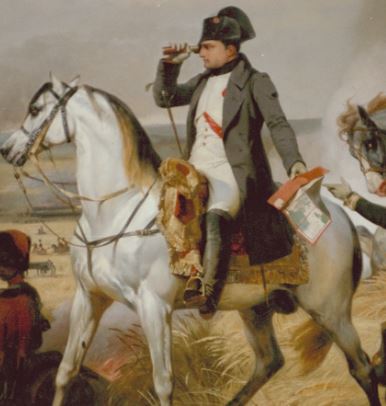Napoleonic Wars

The Napoleonic Wars (1803–1815) were a series of major conflicts pitting the French Empire and its allies, led by Napoleon I, against a fluctuating array of European powers formed into various coalitions. It produced a period of French domination over most of continental Europe. The wars stemmed from the unresolved disputes associated with the French Revolution and its resultant conflict. The wars are often categorised into five conflicts, each termed after the coalition that fought Napoleon: the Third Coalition (1805), the Fourth (1806–07), the Fifth (1809), the Sixth (1813–14), and the Seventh (1815).
Napoleon, upon ascending to First Consul of France in 1799, had inherited a republic in chaos; he subsequently created a state with stable finances, a strong bureaucracy, and a well-trained army. In 1805, Austria and Russia formed the Third Coalition and waged war against France. In response, Napoleon defeated the allied Russo-Austrian army at Austerlitz in December 1805, which is considered his greatest victory. At sea, the British severely defeated the joint Franco-Spanish navy in the Battle of Trafalgar on 21 October 1805. This victory secured British control of the seas and prevented the invasion of Britain itself.
Concerned about increasing French power, Prussia led the creation of the Fourth Coalition with Russia, Saxony, and Sweden, and the resumption of war in October 1806. Napoleon quickly defeated the Prussians at Jena and the Russians at Friedland, bringing an uneasy peace to the continent. The peace failed, though, as war broke out in 1809, with the badly prepared Fifth Coalition, led by Austria. At first, the Austrians won a stunning victory at Aspern-Essling, but were quickly defeated at Wagram.
